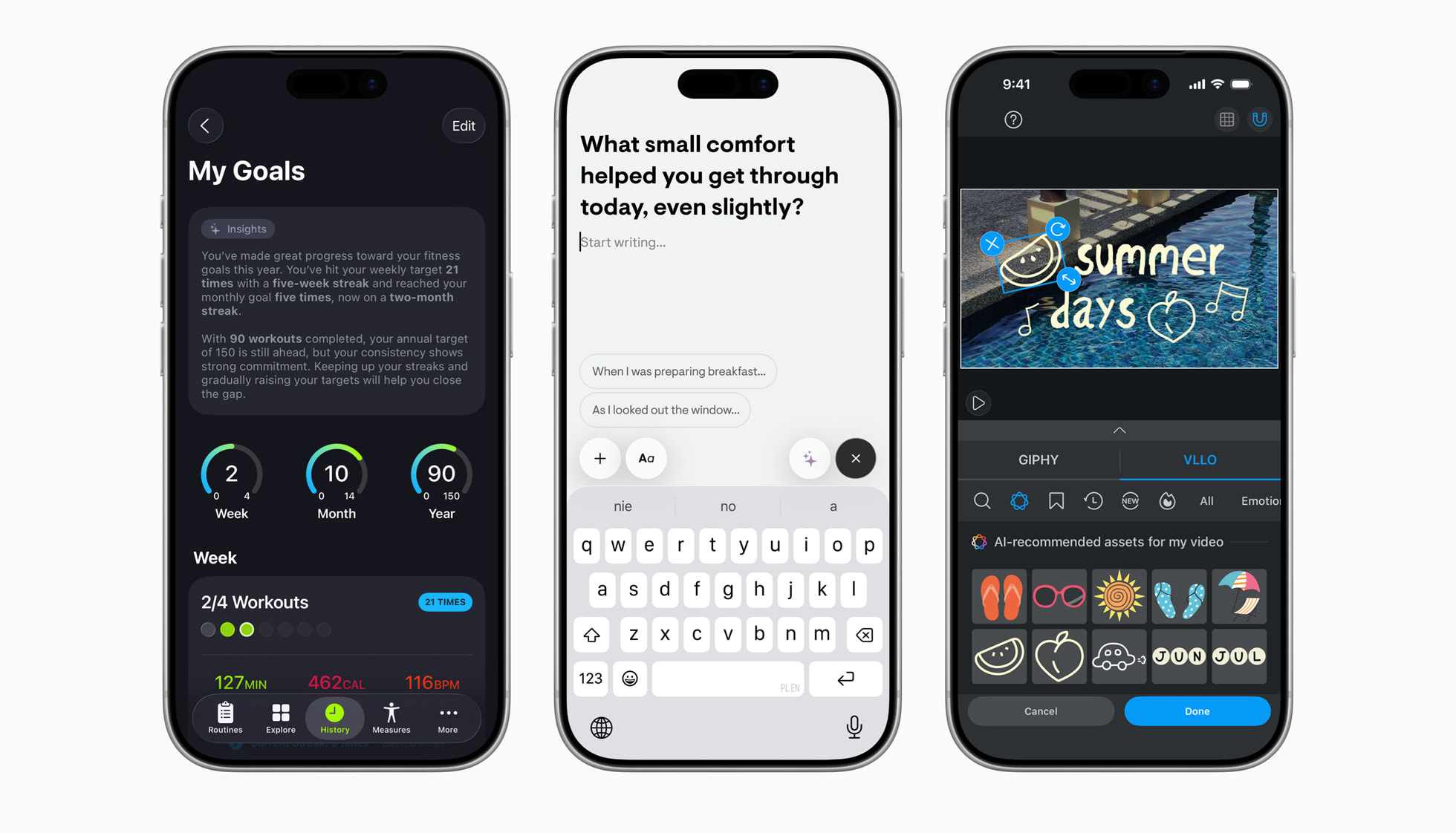
Starting with iOS 26, iPadOS 26, and macOS 26, Apple provides app developers with access to a new Foundation Models framework that allows their apps to tap into the on-device large language model at the core of Apple Intelligence.

Apple today highlighted some of the iPhone, iPad, and Mac apps utilizing the Foundation Models framework to power new features and capabilities.
For example, in the fitness app SmartGym, users can now describe a workout and turn it into a structured routine with sets, reps, rest times, and equipment adaptation. SmartGym also generates insightful summaries of workout data, and more.
In the journaling app Stoic, users can now receive contextual journaling prompts that are generated from their recent entries, and there are other new features.
SwingVision, an app that helps users with their tennis or pickleball skills, uses the framework to generate advice for players to improve their game.
Foundation Models powers new Listen Mode and Scan Mode options in the to-do app Stuff.
The task management app OmniFocus 4 can now generate projects and next steps on a user's behalf, such as helping them know what to pack for an upcoming trip.
Apple's press release highlights many other apps using the framework.
Article Link: These iOS 26 Apps Are Using Apple Intelligence to Power New Features

